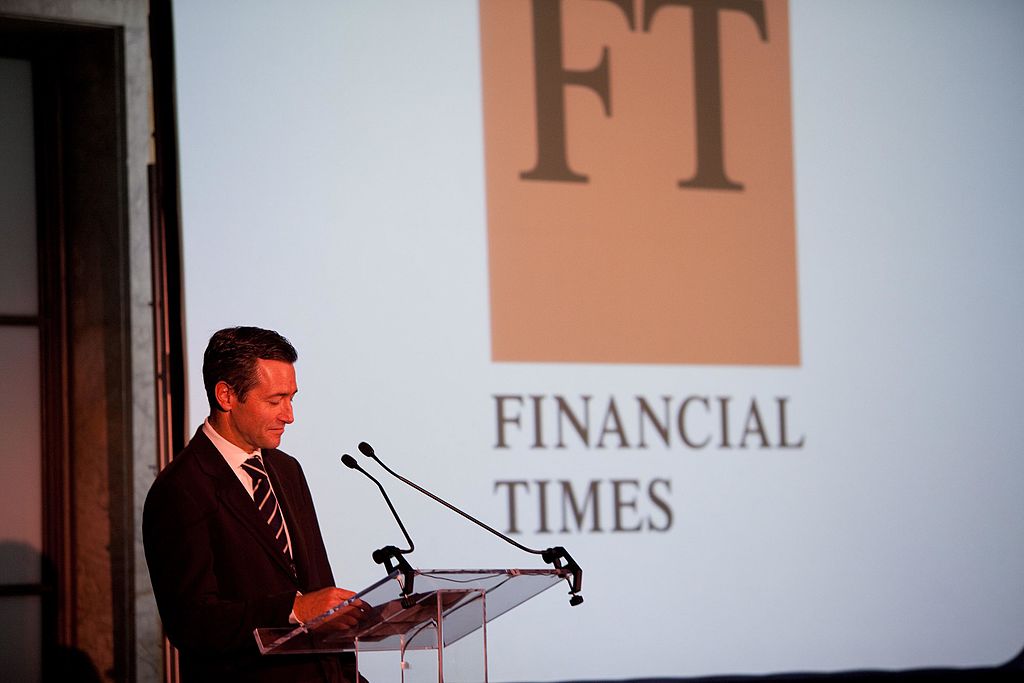‘Democracy dies in disinformation’ – Financial Times CEO speaks at WES
Chief Executive Officer of the Financial Times (FT), John Ridding, gave a keynote speech on the first day of this year’s Warwick Economics Summit (WES). Having served at the FT for more than three decades, Ridding opined on the effects that new technologies such as artificial intelligence (AI) have had on democracies worldwide.
WES is an annual student-led conference which took place from 2–4 February this year, The Summit encompassed a wide range of speaker events, panels, and careers-related events, involving a multitude of prominent figures within the world of economics, finance, and beyond.
Ridding began his address by discussing the broader global context in which democracy is currently situated. Popular discontent with democracy has grown, with 49% of Britons and 57% of people living in the US expressing dissatisfaction with the way democracy is working in their respective countries.
He then proceeded to highlight the negative effects of AI on recent elections – in Bangladesh, Slovakia, and the United States, it was used to propagate ‘deepfakes; a form of media that artificially alters people’s vocal or facial features – typically with the intent of spreading misinformation. Alongside this, he brought up the creation of fake news websites like the Denver Guardian, which promulgated misinformation about Democratic Party presidential candidate, Hillary Clinton, in the run up to the 2016 presidential election.
All of this is happening against the backdrop of a declining traditional press which faces significant public mistrust, Ridding argued. He presented survey data noting that in over ½ of 28 countries surveyed, the general public distrusts the media on net. Traditional news media – which he suggested was a key bulwark against misinformation and manipulation of the public, is also being crowded out by social media platforms, which, he posited, tend to prize engagement over accuracy.
Zeroing in on the role of social media platforms in regulating political content – he suggested there was a tension between the profit motive and effective regulation – social media companies “optimise for time and attention” creating incentives for the proliferation of sensationalist content that “tends towards inaccuracy”.
All in all, the stakes are high, as per Ridding. Referring to the official slogan of the Washington Post, “Democracy Dies in Darkness”, he suggested “democracy dies in disinformation”.
That being said, Ridding warned against “defeatism”, although he noted that it is “pretty hard at the moment to be optimistic” about the future of traditional media. Media organisations “shouldn’t be passive players or victims”, he stated, noting that they can maintain a “robust” presence in public discourse with the right strategies in place. He evidenced this by discussing the FT, which has seen its global paying audience and operating revenue consistently rise over the past few years.
In particular, he argued that in order to remain competitive, traditional press organisations should specialise, exploiting unique advantages they may have. For the FT, Ridding believes the newspaper’s area of specialty is its ability to provide a “nonpartisan approach” and a profoundly “global dimension” to news reporting.
With the significant decline in advertising revenue that traditional media organisations have faced recently, Ridding suggested they should “have the confidence” to shift away from advertising-based models to subscription-based ones. The FT pioneered a digital subscription model two decades ago – with the move facing controversy at the time as many believed that internet content should be freely accessible. However, Ridding suggested the move has reaped dividends in the long run, significantly increasing the organisation’s bottom line.
Despite this emphasis on revenue and financial sustainability, he accepted that there were downsides to profit maximisation in journalism; as such, Ridding suggested the FT was “very fortunate” that its owner, Japanese media company Nikkei, does not profit maximise. This allows the newspaper to “open the kimono” and focus on non-monetary objectives – an example being the FT’s initiatives to make articles about particularly topical issues free for limited time periods.
Whilst highlighting what he perceived as AI’s pernicious impact on democracy, Ridding suggested that it can have a positive effect if used responsibly. The FT has integrated AI into its own operations, using it for a range of purposes including translating English articles into other global languages. Even then, he argued that AI cannot completely substitute for human journalists, who still have an important role to play.
He emphasised the importance of government regulation of online content, but argued this can entail trade-offs. In developing countries, where not only governments have fewer resources to effectively regulate, but also democracies tend to be more fragile, there is a risk that fake news and misinformation “swamps” regulators. Furthermore, he noted that government regulation of news risks undermining free speech – as defining what content is and is not harmful is an inherently subjective question.
A Q&A session followed Ridding’s address, during which WES attendees queried about topics ranging from the role of AI in policing to the media’s ability to hold governments to account. He suggested that in the context of policing, he was “nervous about [AI’s] invasion of privacy”, pointing out that public trust in governments is crucial if they wish to use modern surveillance techniques. In relation to governmental accountability, he praised local media organisations – noting they have generally remained financially sustainable whilst holding local governments responsible for their actions effectively.

Comments